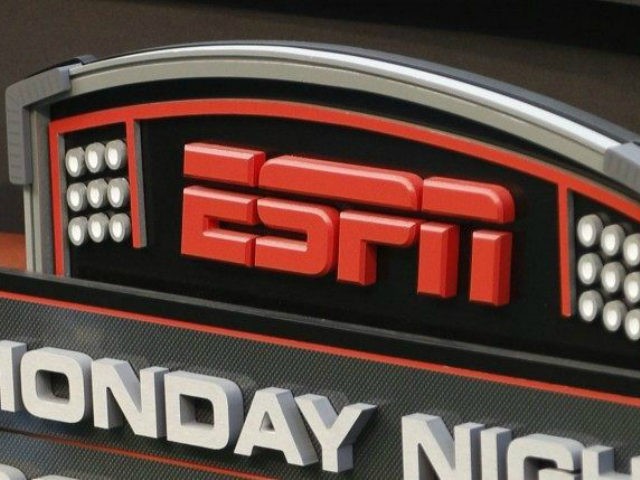The Washington Post predicts “Rogue One: A Star Wars Story” will make Disney a ton of money. Yet, no matter how well the movie does, the film will likely get “overshadowed” by ESPN’s hemorrhaging of viewers “in record numbers,” resulting in growing angst and alarm among investors in the Magic Kingdom.
“Let’s face it – sports has changed,” noted Disney analyst Jim Hill. “It’s gotten so expensive … it’s a scary time all around the barn right now for sports, and that’s another thing that Disney’s eyeballing.”
The fear factor Hill references has to do with the price of sports broadcasting rights, the exorbitant and ever-growing amounts of money that broadcast networks pay to sports leagues like the NFL in order to broadcast their games.
The reason why that sparks fear in the hearts of sports media networks, notably ESPN, has to do with the fact that ESPN might soon arrive at a point where they can no longer afford to pay for those broadcasting rights because their network is crumbling. In the months of November and December, Nielsen projected ESPN to lose 621,000, and 555,000 subscribers respectively. Looked at more broadly, ESPN has lost nine million subscribers over the last three years.
Laura Martin, a media analyst at Needham and Co., puts the problem in perspective. Martin explains, “Most of the Disney Empire is healthy, but its stock price has been suffering to the downside because we have weak subscriber growth at ESPN. So that weak subscriber growth is a shadow over the whole empire.”
Of course, dozens of different companies and properties fall under the “Disney Empire,” so one would think ESPN’s struggles, though bad, might not necessarily drag the rest of the company down. However, according to the Washington Post, “ESPN and its siblings, such as ABC, account for the biggest chunk of Disney’s business by far, pulling in $24 billion in revenue this fiscal year. The company’s next biggest segment, theme parks, made $17 billion.”
To get a picture of the overall rate of increase in broadcasting rights, the Washington Post includes these numbers: “The rights to broadcast live sports cost cable companies a collective $16 billion last year, according to a report from PricewaterhouseCoopers — up 50 percent from 2011. That figure is expected to grow another 30 percent by 2020.”
The loss in income, coupled with the radical increase in sports broadcasting rights, is why industry analysts have begun calling for Disney to at least separate, if not divorce themselves from ESPN. According to Bloomberg, “Last month, billionaire John Malone — the dealmaker of all media dealmakers — speculated that Disney may spin off or sell ESPN, along with maybe ABC. He then went so far as to say Apple Inc. may be interested in merging with Disney after the split. The Edge, which analyzes spinoffs, has written about a Disney breakup, too, noting that the media networks and the rest of Disney “lack sufficient synergies and have vastly different outlooks and business model challenges.”
RBC Capital Markets analyst Steven Cahall agrees, “In a report Monday, Cahall wrote that ESPN “has almost single-handedly de-rated Disney by about 3.5 to 4 turns” of its Ebitda multiple. After the stock got a small pop Monday, Disney was valued at 10.7 times the Ebitda it generated in the past 12 months. That’s down from a multiple of nearly 14 about a year ago, according to data compiled by Bloomberg.”
Those losses loom so large for ESPN and Disney that some think ESPN could eventually become a streaming app. According to the Washington Post, “ESPN, too, has a streaming app of its own – but it is limited in what cord-cutters can view there. The app reserves its best programming for traditional TV subscribers to prevent too many cable customers from migrating away. Eventually, ESPN may conclude that its subscriber losses are so great that the only way to retain those customers is to begin offering cable content more widely on the app, said Jan Dawson, an analyst at the market research firm Jackdaw Research.
“I do see ESPN eventually doing an HBO Now-style online service,” he said. “I think it’s inevitable.”
Of course, whether ESPN appears as a part of your basic cable package or as an app on your phone, it would probably serve them well to focus more on talking sports and less on trying to get people to vote Democrat.
Follow Dylan Gwinn on Twitter: @themightygwinn

COMMENTS
Please let us know if you're having issues with commenting.